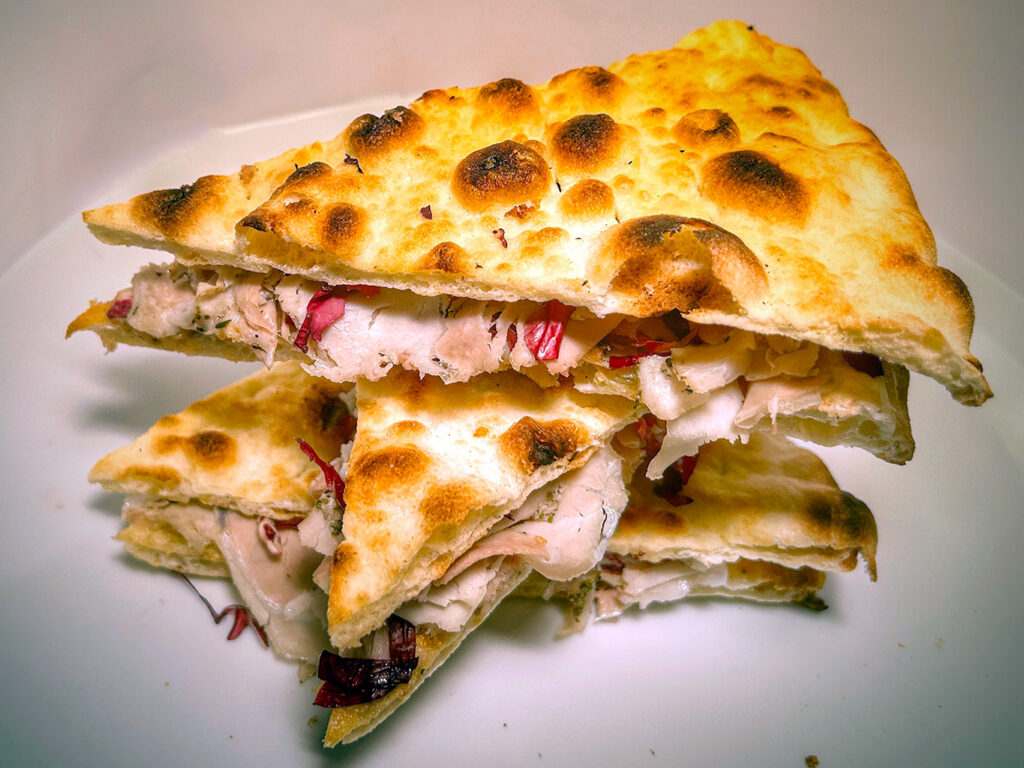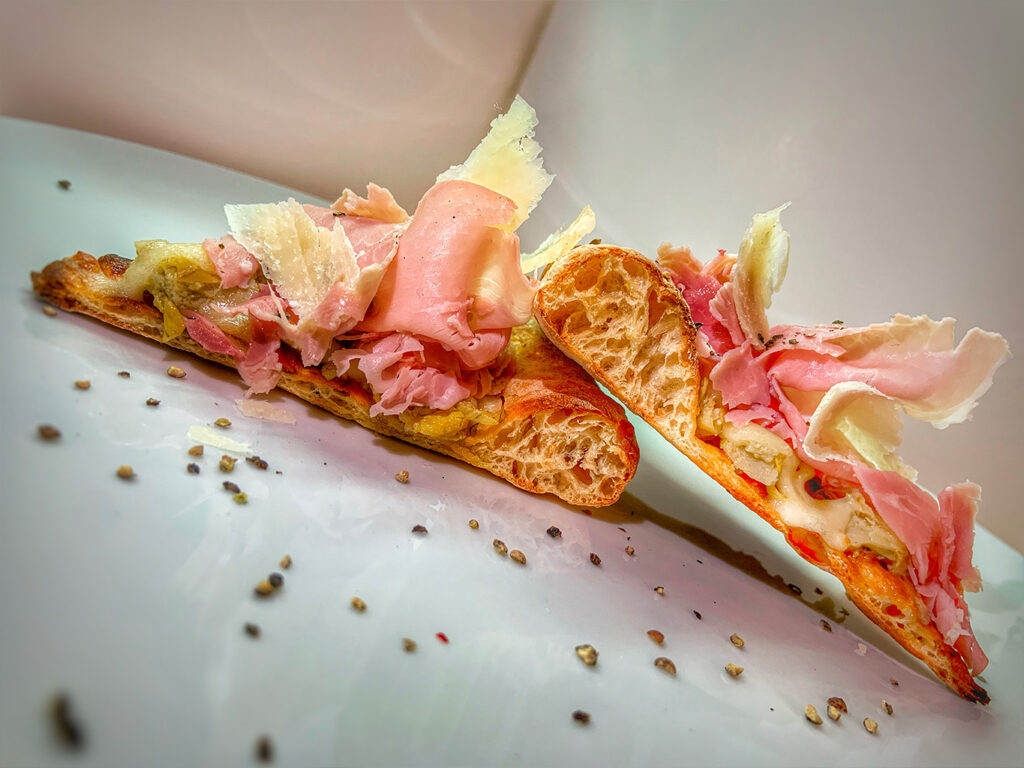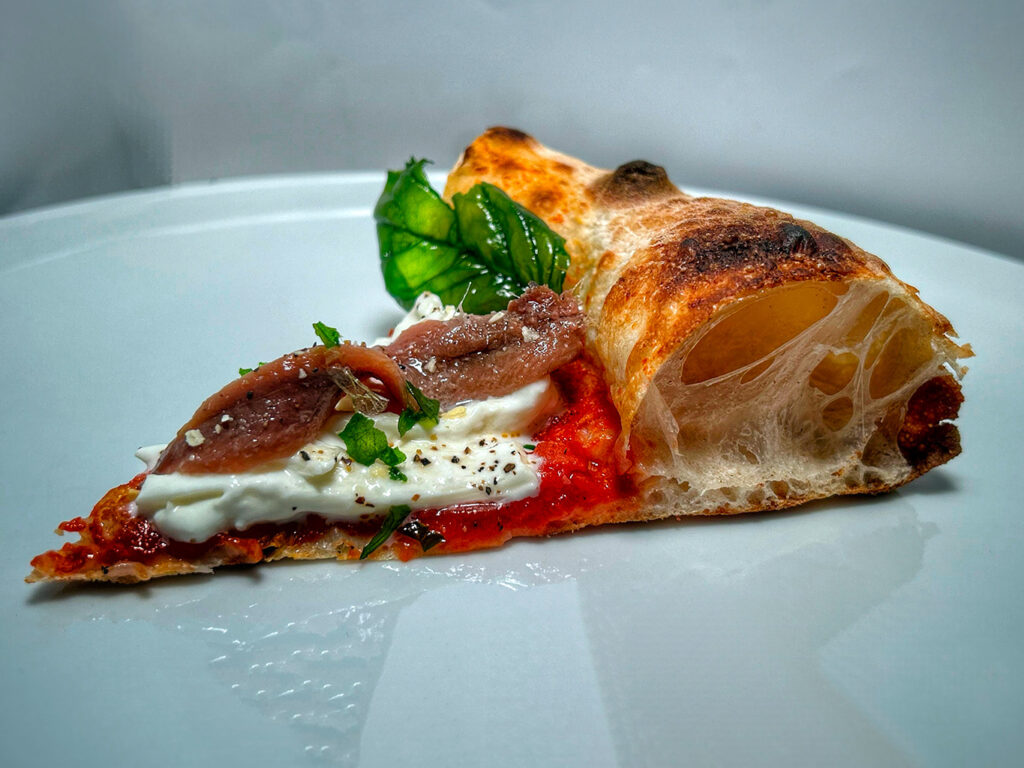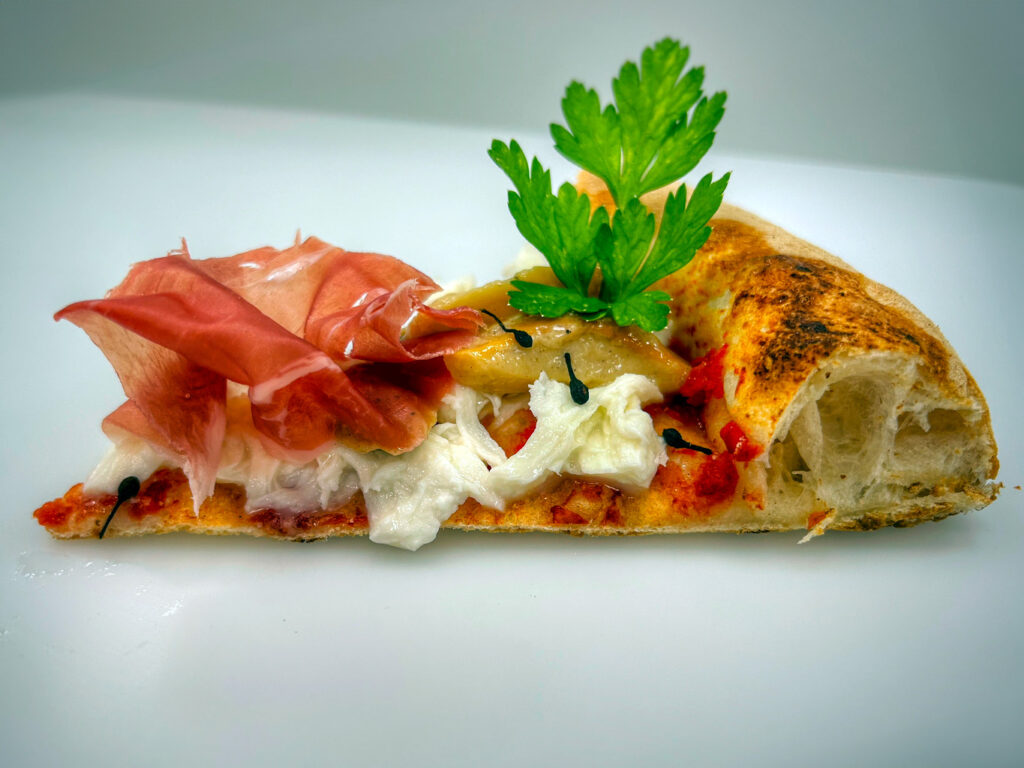Eliana
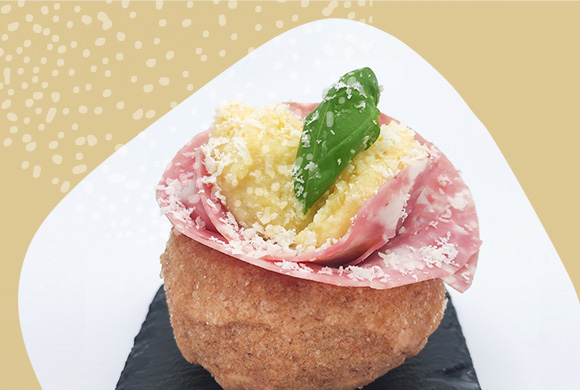
Ingredients
Biga:
of “Mora” flour
of water
of fresh brewer’s yeast
After storing the biga for 16h at 18°C refresh with:
of blue |Semina| flour
of water
of extra virgin olive oil
of sea salt
Topping ingredients:
of yellow Piedmontese potatoes
of steamed corn flour
of cooked salami “Monferrato”
of butter from Alta Langa
of Castelmagno cheese
Salt as needed
Frying:
Olive oil or peanut oil
Share on:
Introduction
It may sound strange, but even in the Langhe, a territory set in the Provincia Granda of Piedmont, we can find some of the cornerstones of the Mediterranean Diet. The sinuous expanses of the hills are in fact home to the wonderful vineyards that give precious wines to the whole world. The Piedmontese of Alta Langa have observed the socio-economic changes of Italy, always preserving the heritage of the peasant and gastronomic tradition. Eliana is 84 years old and for decades she has seen the snow cover the villages of Monferrato and melt in spring. She walked the streets of vineyards with the cold and with the sun, she saw the vines sprouting and she smelled the grapes on her hands, marked by the hard work of peasant life and stained by the colors of her land. Eliana is a simple woman, she felt flowing in her hands the 7 varieties of corn that today represent Piedmont's biodiversity, she prepared the "cibo-pronto", a transposition of "pane cafone" (peasants' bread) from Campania region, to offer refreshment from the hard work done in the countryside and vineyards.
This is where "Eliana" comes from, the peasant montanarina that tells about a moment of peace. It is a recipe that contains the taste of "another life", made of authentic flavors, enriched by “Mora” flour by @agugiaro. The authenticity of the Piedmontese peasants can be found in the Cooked Salami, typical of the Monferrato area, accompanied by potato cream, corn flour and flakes of the king of cheeses, Castelmagno.
Proceedings
Dough method:
Put 300g of Mora into the mixer. Dissolve 3g of diluted brewer’s yeast in 180 ml of water. Start the mixer at medium speed and immediately pour in 80% of the water; after 1 minute pour in the rest. Knead for only 3 – 4 minutes and, if possible, reverse the kneading direction for 30 seconds, in order to prevent the dough from sticking together. The result will be rough dough. Extract it from the mixer and put it in an oiled box. Keep the biga for 16-18 hours at 18°C.
After this time, put the biga into the mixer and add 200g of blue “Semina” flour. Add the remaining part of water indicated in the refreshment doses, keeping 10% of it. After 6 minutes add the oil and knead until completely absorbed, which will take about 3 minutes. Add salt and increase speed. Gradually, add the remaining water slowly, evaluating the type of dough you want to achieve.
Carefully take the dough and gently place it on the workbench. Cover it for about 20 minutes with a damp cloth. Cut the dough into loaves of about 45g and put them in a box until they double in size.
Preparing toppings:
Yellow Piedmontese potatoes: accurately wash the potatoes using a toothbrush. Boil the potatoes for about 40 minutes. After they are cooked, remove the outer skin and mash them.
Cream of Potatoes and Cornmeal: Pour 1 l of water into a medium deep casserole and boil. Gradually add the corn flour, using a whisk. Once a homogeneous mixture is obtained, add the butter, the mashed potatoes and the salt. Depending on how the potatoes absorb the water, add more water or butter for a slightly creamier consistency. Add salt to taste.
Cooked Salami: cut the cooked salami “Monferrato” into not too thin slices.
Castelmagno: grate the Castelmagno into flakes.
Frying the montanarina:
Pour the oil in a pan and heat it to 180°C. Take the dough out of the box and put it into the pan. With the help of a skimmer and a spoon, turn it over after a few seconds and sprinkle it with oil continuously, until it has puffed up and has a uniform golden color. Place it on straw paper in an aluminum container and proceed to the composition. Place the cooked salami on the base, the cream of potato and cornmeal in the center and cover with flakes of Castelmagno cheese.
Pizza chef's tips
Observe the dough while it is rising as room temperature may affect leavening time;
To make sure potatoes are cooked evenly, pour water 3 times the weight of the potatoes when boiling. Choose potatoes of similar size and check their cooking and internal consistency using a fork;
The consistency of the cream of potatoes and corn flour may vary according to the degree of absorption of flour and potatoes themselves. For this reason, slowly add hot water to taste in order to vary the consistency obtained;
When frying the dough, use a thermometer to avoid exceeding the smoke point. In case you do not have a thermometer, drop a small piece of dough into the oil; if it comes back to the surface after a few seconds, proceed with the frying.
Insights
Difficulty: medium
Cost $$
Dose for 12 montanarinas (6 servings)
Dough preparation time: about 24h
Leavening time: about 24h (depends also on room temperature)
Dough cooking time: 2 min
Dressing preparation: 1 hour and 30 minutes
